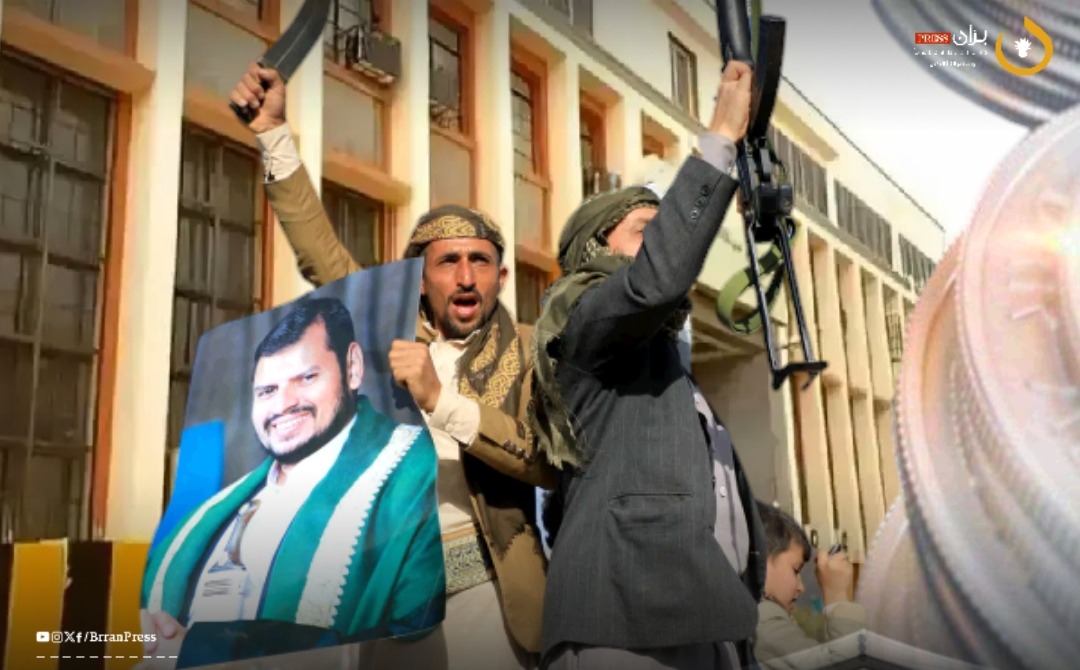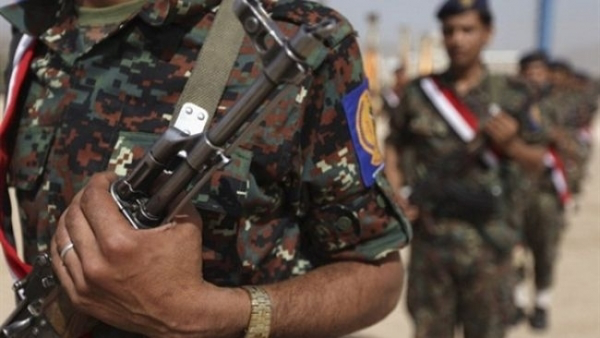
Barran Press
An analysis by the Washington-based Arab Gulf States Institute (AGSI) has identified the Houthi group's economic vulnerability as its Achilles' heel, arguing that decisions made by the Central Bank in Aden, though later retracted, could have effectively crippled the group.
The analysis, authored by former UN Panel of Experts on Yemen member Gregory D. Johnson, and reviewed by "Barran Press," acknowledges that potential risks and drawbacks hinder the full exploitation of the Houthis' economic weakness.
Johnson points out that the Houthis' threats to renew attacks on Saudi Arabia are significant enough to have compelled both Riyadh and the UN to pressure the internationally recognized government to back down from its economic decisions. This refers to the economic measures implemented by the Yemeni Central Bank in Aden, the temporary capital, which were later revoked.
"This is the challenge facing the Houthis, in short," Johnson states, emphasizing that the international community is "not prepared for an all-out war with the group, but anything less is unlikely to succeed."
The analysis suggests that the international community is attempting to employ half-measures militarily, politically, and economically, but these efforts are "not doing much to harm the group, while the Houthis are gaining strength, and the role that non-Houthi Yemeni forces can play in shaping Yemen's future is becoming increasingly bleak."
The AGSI states that in recent months, while the US has struggled to deter and weaken the Houthis, the internationally recognized Yemeni government has significantly increased economic pressure on the group.
"The economy, especially revenue and liquidity, is the Houthis' weak point. This is the group's most vulnerable area, and this is precisely where the government in Aden is putting pressure," the analysis explains.
However, according to the analysis, this approach carries significant risks. Increased economic pressure on the Houthis is likely to trigger renewed attacks on Saudi Arabia, while in the long run, it could make the reunification of Yemen into a single state virtually impossible.
The analysis notes that this is why both Saudi Arabia and the UN opposed the government's economic measures, highlighting that this is the "dilemma in the Yemeni conflict."
Regarding the US military campaign against the Houthis, the analysis states that the international community is "caught between two unattractive options." The first is that the US, Saudi Arabia, and the UN lack the political will or military capacity to fully engage the Houthis in an open conflict to inflict a decisive defeat and destroy them.
"Even if the US had the political will, decisively defeating the Houthis would not be easy, quick, or even guaranteed. It would likely be a long, bloody, and possibly inconclusive war," the analysis warns.
The second option, according to Johnson, is that half-measures against the Houthis have not been successful. He points out that on the military front, "US efforts to launch a measured bombing campaign have failed, as have political efforts, where all successive UN Special Envoys have tried and failed to engage the Houthis and convince them to be part of a national government."
He adds, "Taking into account the dire humanitarian situation, as well as the long-term consequences for the unity of the Yemeni state, the UN and Saudi Arabia have essentially empowered the Houthis and weakened their ostensible allies in the internationally recognized government."
"Nothing is more indicative of this than the efforts by Saudi Arabia and the UN to neutralize the government's effective economic attack on the Houthis," the analysis states.
It explains that on July 7, the Yemeni Central Bank in Aden revoked the licenses of six banks for failing to relocate their headquarters from Sana'a, which is under Houthi control, to territory controlled by the Yemeni government. This move was part of a broader strategy to economically isolate the Houthis by forcing companies and entities paying taxes to leave Sana'a, where the Houthis seize revenue and taxes, and return them under the government's umbrella.
In this case, the author of the analysis argues that this move would have cut the banks off from the SWIFT international banking messaging system, and coupled with the Houthis being on the list of "specially designated global terrorists," would have significantly isolated the Houthis and increased economic pressure on them.
The analysis notes that "immediately following the Central Bank's order, all financial transfers between government-controlled territory and Houthi-controlled territory stopped."
While the Houthis "artificially inflated the value of the Yemeni riyal in areas under their control," they considered the license revocation a major escalation and an attempt to sow discord and incite unrest among the population in areas they control.
The analysis considers the revocation of bank licenses to be an attempt to undermine and weaken the Houthis' control. "The Yemeni riyal is trading at between 525 and 650 to the US dollar in Houthi areas, while the riyal has fallen to 1895 to the dollar in government areas," the analysis states.





